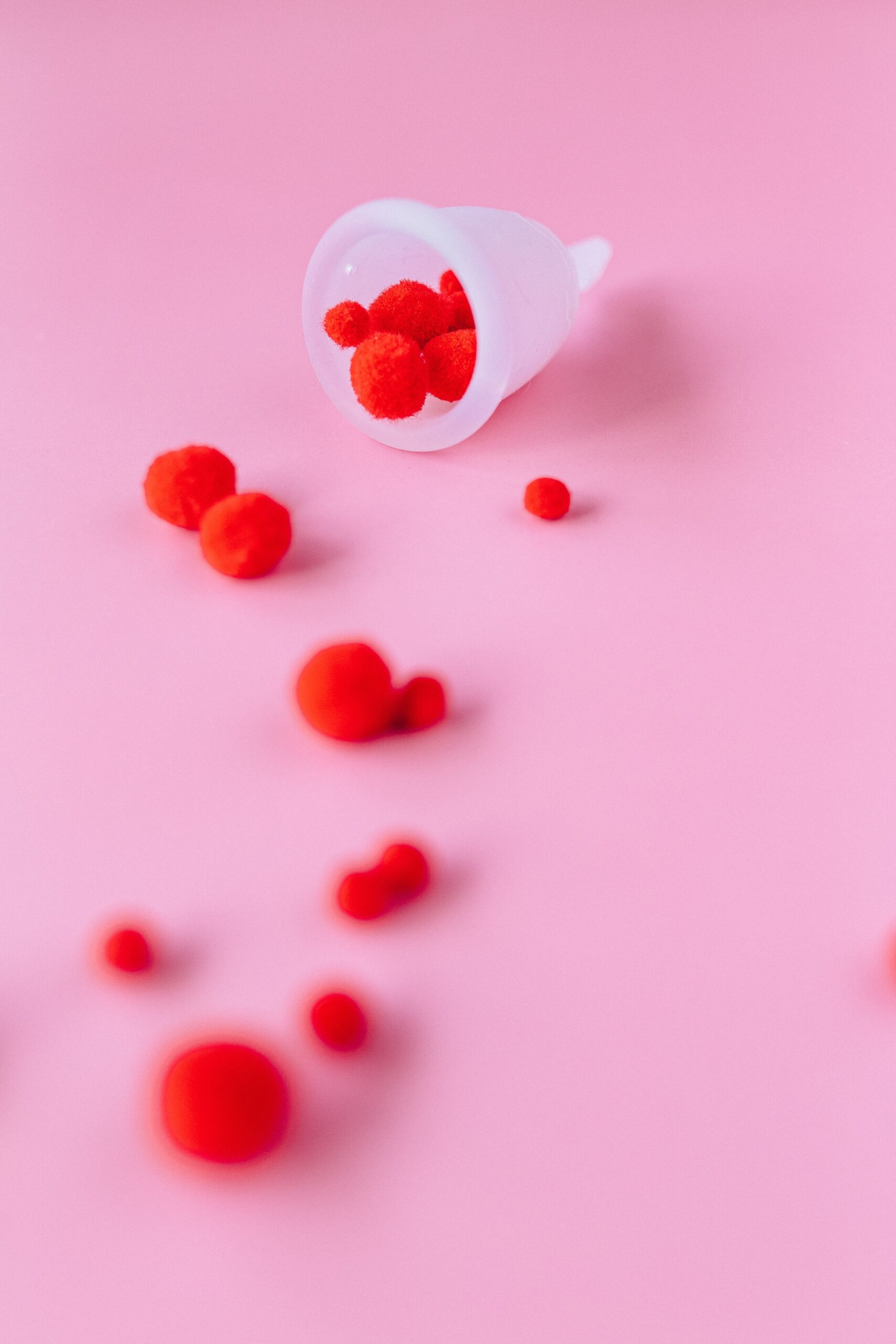For many women, it is a familiar phenomenon: right before our period we can feel emotional and down. These symptoms are often part of the premenstrual syndrome (PMS), during which we can experience emotional as well as physical symptoms. About 40% of women suffer from PMS symptoms and as many as 5-8% of these experience severe PMS. Although the symptoms of PMS can be different for every woman, many of us experience mood swings, irritability, feelings of anxiety and even a mild form of depression. In this article, we take a closer look at why we feel down before our periods. We also discuss what we can do to get through this time with more comfort and resilience.
Why we feel down before our period
Hormonal changes: During our menstrual cycle, fluctuations in our sex hormones estrogen and progesterone take place. Before ovulation, estrogen increases while progesterone levels remain low. After ovulation, progesterone actually increases. In the week before our period, estrogen and progesterone both decrease significantly which can lead to emotional changes.
Sensitivity to hormones: Some women are more sensitive to the hormonal changes that occur before menstruation, making them more prone to feeling down and other PMS symptoms. Presumably this is related to genetic predisposition and epigenetic factors, such as diet, stress, amount of exercise, smoking, and other lifestyle factors, but unfortunately too little is know about this yet.
Serotonin level: Serotonin is a neurotransmitter that affects our mood. Just before menstruation, serotonin levels in the brain can drop, leading to irritability and feeling low.
Stress: PMS symptoms can be worsened by stress. High levels of stress can activate the HPA axis (hypothalamic-pituitary-adrenal axis) which increases cortisol production. High cortisol levels can affect hormonal balance and increase susceptibility to PMS symptoms. Moreover, prolonged stress can deplete serotonin which intensifies feeling low.
What we can do to feel better before our period
Exercise: Regular exercise can help improve mood by releasing endorphins, the so-called ‘happiness hormones’. Endorphins have a natural calming and mood-boosting effect, positively affecting the stress response system, including the HPA axis. Moderate exercise can lower cortisol levels, while intense or prolonged exercise can lead to short-term elevations that return to normal after exercise. Therefore, try light exercise such as walking, yoga or cycling to reduce stress and refresh your mind.
Healthy diet: A balanced diet with high-fibre foods including whole grain cereals, vegetables and fruits can contribute to regular digestion and reduce PMS symptoms such as bloating. For women on a vegan diet, it is important to consume enough protein as it is the building blocks for our hormones and neurotransmitters. Foods rich in magnesium, such as bananas, nuts and seeds, may possibly help regulate mood swings through its influence on neurotransmitters such as GABA that have calming effects on the nervous system.
Avoid caffeine and sugar: Caffeine can worsen anxiety and irritability, while sugar can cause blood sugar levels to fluctuate which can lead to emotional ups and downs. Try to limit or avoid these stimulants during the days before your period.
Relaxation and sleep: Get enough rest and sleep to help your body recover and calm your mind. Try relaxation techniques such as meditation, deep breathing exercises or a hot bath to reduce stress.
Make space for feelings: It can help to be open about your feelings and symptoms with your partner, friends and family. Talking about your emotions might help you to cope better with feeling down. The luteal phase (the period after ovulation) is a phase when women generally feel more introspective, more sensitive to emotions and more focused on their inner world. If these feelings recur periodically, it may be wise to adjust your life accordingly. Do not schedule important work and social events during this phase and make time for self-care, rest and self-reflection.
Talk to your GP: If PMS symptoms are severe and interfere with your daily functioning, consider seeking professional medical help. A doctor can help you identify the right treatment that can relieve symptoms.
Consider natural remedies: Vitex Agnus Castus, also known as Chasteberry, is a herb that has been used for centuries to support women with menstrual-related problems, including PMS. It improves the hormonal balance by affecting the hypothalamus and pituitary gland. These structures in the brain regulate hormones such as prolactin, estrogen and progesterone. Vitex agnus castus can reduce PMS symptoms by relieving mood swings, irritability, breast tension and other symptoms. Scientific research shows significant improvement in PMS symptoms in women who take this herb. Read about it in our article ‘Vitex Agnus Castus: a natural remedy for PMS‘. Consult with your doctor before taking herbal supplements, especially if you are already taking medication or have health problems.
It is normal to feel down and emotional right before your period because of hormonal fluctuations and other factors. Fortunately, there are several steps you can take to make this phase more bearable. By exercising regularly, eating healthy, reducing stress and taking time for relaxation, you can ease PMS symptoms and keep your mind balanced. Remember that everyone is different, it is important to listen to your body and seek the right support when needed. With the right approach, you can face this monthly challenge with more resilience and well-being.
References:
(1) Green, LJ, O’Brien, PMS, Panay, N, Craig, M on behalf of the Royal College of Obstetricians and Gynaecologists. Management of premenstrual syndrome. BJOG 2017; 124: e73–e105.
(2) Girman, A., Lee, R., & Kligler, B. (2003). An integrative medicine approach to premenstrual syndrome. American journal of obstetrics and gynecology, 188(5 Suppl), S56–S65. https://doi.org/10.1067/mob.2003.403
(3) Premenstrueel syndroom (PMS) | De Gynaecoloog
(4) van Die, M. D., Burger, H. G., Teede, H. J., & Bone, K. M. (2013). Vitex agnus-castus extracts for female reproductive disorders: a systematic review of clinical trials. Planta medica, 79(7), 562–575. https://doi.org/10.1055/s-0032-1327831

Leave a Reply